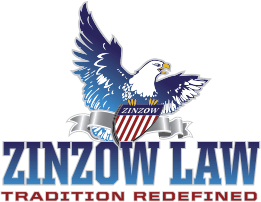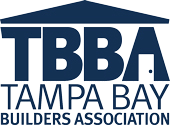
April 14, 2025
Week six of this year’s legislative session produced both progress and stagnation. With committee schedules ending soon, some bills may not make it across the finish line this year because they may not make it through one or more necessary committee stops. Norms and rules, though, can be waived. Portions of a bill’s text can be added to other bills that have already cleared procedural safeguards and hurdles. Senate bills can be presented to the House for a floor vote where a House Bill has languished in committee. Our FHBA Government Affairs Committee remains ever vigilant, as the story isn’t fully written until session ends and the Governor’s pen is dry of ink. Here are some of the most significant developments last week:
- Impact Fees/Art Fees (SB 482 / HB 665): The Senate Bill still addresses only the extraordinary circumstances definition and does not address art fees. We were hopeful this bill would be heard in another committee of reference last week but it was not. It may still happen, but with the budgets being dropped last week, much focus was diverted in Tallahassee to fiscal matters. The House Bill, on the other hand, advanced through its committee of reference last week. The extraordinary circumstances fee was amended to include expanded criteria. This bill also still prohibits the assessment of art fees.
- Mitigation Banking (SB 492 / HB 1175): Both the Senate and House Bills passed their committees last week. The Senate Bill has another committee stop but the House Bill is now on the House calendar. Both bills are making good progress.
- DBPR Deregulation (HB 1461): This brand-new bill is a prime example why legislative happenings are never sleepy. Are you frustrated with government inefficiency and delay that sometimes plagues even the most well-intentioned regulators? Have a look at this bill that took Tallahassee by storm. It is a complete 196 page re-write of what we know today as the DBPR. Among many other things it:
- Collapses and consolidates most of the many DBPR divisions and boards, such as the Construction Industry Licensing Board, into one omnibus DBPR. The Florida Building Commission will remain a separate board.
- Requires DBPR to recommend a uniform permit application form for most routine permits and a uniform process for video inspections.
- Prohibits the DBPR from imposing continuing education as a condition of maintaining a construction license.
- Eliminates residential repair permits for up to one year after an emergency as long as the footprint is not being expanded and the repairs do not extend to more than 50% of the home.
- Prohibits local government from denying a certificate of occupancy during, and for a certain period after, an emergency if landscaping does not comply with local ordinance.
- Prohibits local enforcement agencies from requiring permits for playground and irrigation on single family homes, whether following an emergency or not.
The bill’s overriding principles are interesting and may be quite beneficial to the state, to the building industry generally, and to the industry’s consumers. Last week the FHBA Government Affairs Committee recommended that FHBA Senior Officers generally support the bill with a number of possible caveats, questions, deletions, and additions. FHBA will be meeting with the bill’s sponsor this week to learn more and to share insights.
- Platting (SB 784 / HB 381): Both the Senate and House bills passed their committees last week. The Senate Bill will be heard on the floor this week. The House Bill has one more committee stop and will likely be amended to match the Senate Bill.
- Building Permits for a Single-family Dwelling (SB 1128 / HB 1035): While the bills are different, they are both aimed at reducing permitting hurdles. Both are presently stalled. The House Bill may be heard in a further committee of reference but the Senate Bill is not likely to progress unless Regulated Industries meets again. It presently appears that one or both of these bills may die this session.
- Emergencies (SB 180 / HB 1535): The Senate Bill passed the full Senate last week with a vote of 37 yeah’s and 0 nay’s. It was amended to require inspection of certain sewer systems. The House Bill passed its committee of reference last week. The bills are somewhat different but both bills are positioned well to move forward. It remains unclear which bill may end up being presented to the Governor.
- Wavier or Release of Liens (SB 658 / HB 893): The Senate Bill unanimously passed its final committee last week and is set to be heard this week on the floor. The House Bill may be heard in committee this week. The House Bill eliminates the lien rights of subcontractors and material suppliers if the prime contractor has been paid by the owner in full, even if that prime contractor has failed to pay subcontractors and material suppliers. Nearly every, or perhaps every major construction trade association is actively opposing the House Bill. Amendments to the House Bill are also being offered by trade associations in the event the bill cannot be wholly defeated. If you oppose the bill as many other do, now is the time to call and write your legislators.
- Affordable Housing (SB 1730 / HB 943): The Senate Bill is on special order calendar this week (this calendar is a list of bills on second reading to be taken up in session on a particular day and is typically curated by Senate leadership). The House Bill passed its committee last week and will be heard in another this week. The bills remain very different and still have a long way to go to conform to one another and make it across the finish line.
- Expanded Pre-emption of Utility Service Restrictions (SB 1002 / HB 1523): One or more utilities commissions have been charging developers a fee to secure the future privilege of hooking up to natural gas. These bills aim to take powers away from commissions that may be abusing them and preempts regulation to the state. The bills are well-poised to move through the legislative process.
- Budget: Last week the House and Senate proposed budgets for SFY 2025-2026 of approximately $112.9 billion and $117.3 billion, respectively. Last year’s proposed SFY 2024-2025 budgets totaled roughly $115.5 billion and $115.9 billion, respectively. Budget negotiations will now commence in earnest, but present highlights impacting the construction and development industry include:
- $350,000 Home Builder’s Institute (HBI)-Building Careers for Inmates and Returning Citizens
- $350,000 HBI Careers for Vets
- $150,000,000 Hometown Heroes
- $500,000 to DBPR for Unlicensed Construction Activity Enforcement
- $925,000 Florida Building Code Compliance and Mitigation Program
- $2,000,000 Building Homes for Heroes
- $350,000 Building Industry Institute-Construction Workforce Institute
- $18.8M SHIP-State Housing Initiatives Partnership
- $93.7M MSFH Grants
For more information on these topics and other bills filed with the legislature, please view the Bill Tracker. Your input and engagement is critical.
As Vice Chair I am here to serve you, so please view me both as a resource and as an advocacy messenger. Telephone or email me any time.
I look forward to helping and hearing from you.

Justin R. Zinzow, CEO
Zinzow Law, LLC
ZinDocs, LLC
(727) 787-3121


